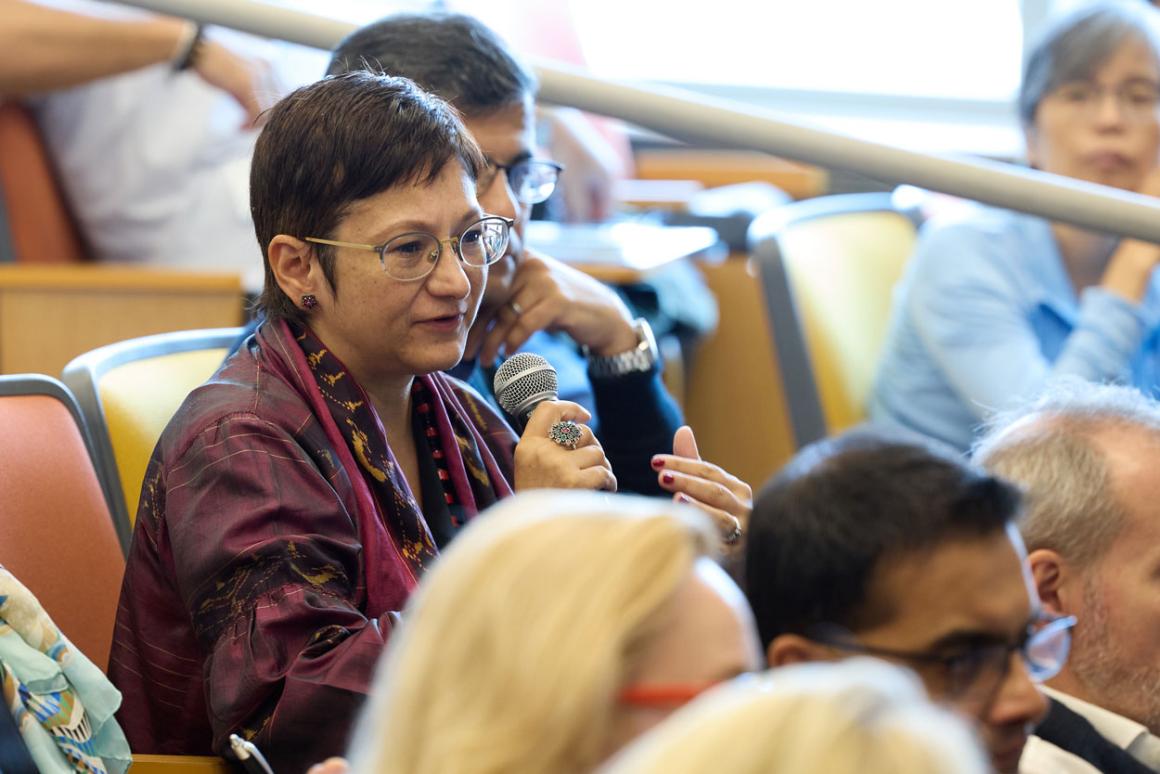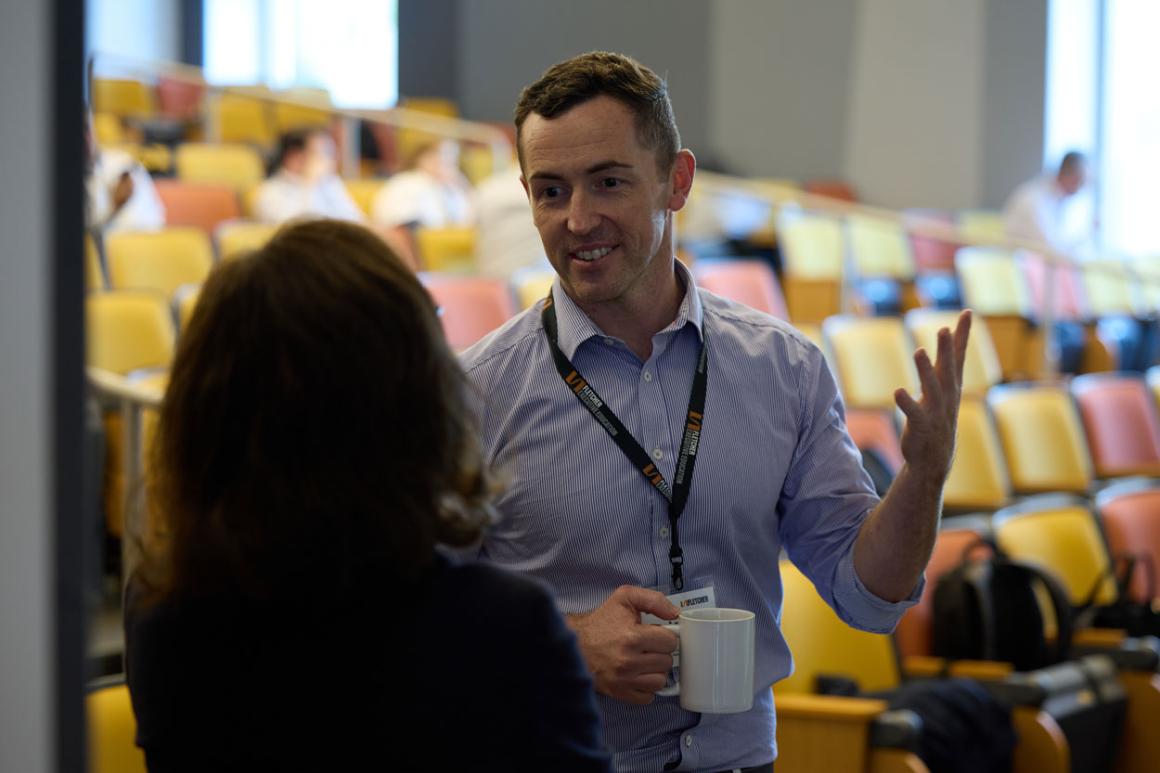-

Hear from Monica Toft, Academic Dean
Learn how Monica Toft, Academic Dean, is shaping the study of global affairs and diplomacy at Fletcher.
Hear from Prof. Toft -

Explore Fletcher academics in action
Fletcher Features offers insights, innovation, stories and expertise by scholars.
Get global insights -
Get application tips right from the source
Learn tips, tricks, and behind-the-scenes insights on applying to Fletcher from our admissions counselors.
Hear from Admissions -

Research that the world is talking about
Stay up to date on the latest research, innovation, and thought leadership from our newsroom.
Stay informed -
Meet Fletcherites and their stories
Get to know our vibrant community through news stories highlighting faculty, students, and alumni.
Meet Fletcherites -

Forge your future after Fletcher
Watch to see how Fletcher prepares global thinkers for success across industries.
See the impact -

Global insights and expertise, on demand.
Need a global affairs expert for a timely and insightful take? Fletcher faculty are available for media inquiries.
Get in Touch
Executive Education
Equipping organizations for success in a fast-changing world
Equipping organizations for success in a fast-changing world
Today's leaders face unparalleled challenges in business, finance, technology, and energy. Your team needs support from experts to productively navigate a complex, dynamic, and global ecosystem. Let’s make that happen.
Fletcher brings nine decades of cross-sector experience training world leaders at the highest levels of global policy to the challenges your team must overcome.
Your organization needs more than a one-size-fits-all solution
Every organization has its own culture, context, and strategy. We honor the unique facets of your team while working closely with you to understand your goals and determine the best combination of subject matter, format, learner engagement, and approach to further your strategy.
Strategy that drives organizational change
Through hands-on practice and timely, informed insights from our expert faculty, your leaders will develop the analytical problem-solving skills and essential competencies required to anticipate and respond to the demands of our complex and fast-changing world.
Participants in our programs emerge with a detailed understanding of the challenges and opportunities facing your industry, and the agility to strategize across sectors.
Executive Education creates trainings intended for cohorts of 15-35 people. Contact us today to discuss what program modality is the ideal fit for your organization.
What recent partners have achieved with us

Learn to effectively strategize for and lead through intricate global contexts
Fletcher Executive Education created a one-day summit for the Qatar Leadership Centre in which 35 leaders from the public and private sectors developed approaches and gained decision-making tools designed to be effective for national and international strategic planning. This intensive program empowered participants to examine the impact of new technologies on geopolitics, security, business and society.
Equip leaders for a strategic priority pivot towards climate finance on a global scale
Our team created Envision, a 6-week online course with a 5-day immersion and follow-up at bank headquarters, for the Asian Development Bank. This bespoke climate leadership training for ADB’s top 100 executives advanced a strategic pivot toward climate finance as the bank’s top investment priority, and empowered its leadership to make informed decisions in pursuing the bank’s goals.
Empower the next generation to succeed in high-stakes negotiations
The “Empowering Young Leaders in Environmental Negotiation” program was a 4-week online course developed for the Global Environment Facility. In the lead-up to COP28, we offered self-paced training in climate negotiation for up to 300 emerging professionals in GEF’s stakeholder and CSO network.
Develop agility and confidence in international security, global business and geopolitical risk
Fletcher Executive Education provides Diplomatic Leadership Academies (5-day immersion) each year for the Ministry of External Affairs, India. This annual partnership with the Sushma Swaraj Institute of Foreign Service provides mid-career and senior-level foreign service officers with in-depth understanding of how to address the complex challenges they face in their work in South and East Asia.
Prepare early-career public servants for the unprecedented challenges ahead
The Aso O. Tavitian Scholars Program has supported educational opportunities for Armenian public servants for nearly 25 years. Each carefully selected cohort completes a semester-long training program in public policy and public administration. In addition to learning from Fletcher’s world-renowned faculty, Scholars engage in enriching networking and co-curricular experiences in Boston and the Northeastern United States.
-
“It’s very important for senior executives to get outside of our work environment and come together to discuss something that’s common to everyone, which is the future of the next generation."
“The program was able to paint a realistic picture of what’s going on in the world. It gives us a sense of optimism because it’s not too late, and we can do something about climate change. With a multilateral development bank like ADB, working with academic institutions and think tanks, I think it’s crucial that we do this and continue to learn in the future.”
–Woochong Um, Managing Director General, Asian Development Bank
Solutions for organizations

Create a powerful learning experience for your team.
Programs are customized for your goals: from masterclasses offering just-in-time content to an executive academy on campus that provides an immersive space for visionary work.
Work with globally renowned experts
Since 1933, our faculty have trained and advised diplomats, business leaders, and policymakers, from the United Nations and the World Bank to Fortune 500 companies, international foundations, and government ministries.
Fields of study from across The Fletcher School can be curated so as to design a customized experience for your unique organization. Explore our learning areas below or contact us today to discuss tailoring a training experience for your team.
Flagship content areas for your custom program

-
When it comes to climate, we don’t pledge. We plan.
Effective climate leadership starts with a knowledge base in climate literacy, including climate risk, global ambitions, and global architecture of climate finance and policy. Our programs delve into current trends and strategies for sustainability and climate policy, including effective public-private partnership, low-carbon economic growth, carbon markets, and regional considerations so that your leaders have the confidence to execute your most complex goals.
-
In the Leadership Lab, a reflection and practice-based workshop proven to cultivate mindsets and strategies for exercising effective and responsible leadership, your team will learn to lead through volatile, uncertain, complex, ambiguous, and multicultural contexts.leadership identity and leading teams.
Our experienced faculty will guide your cohort through the intricacies of how to shape strategy, culture, and the course of history.
Using case studies of real-world global crises, international organizations, and national change initiatives, participants will learn how individuals can create and manage change at scale, whether in a team, company, region, or internationally.
-
Examine causes of violent conflict in the international context.
Our faculty specialize in theories and practice of international negotiation, mediation, problem-solving, and various other approaches to international conflict resolution.
Hands-on, simulation-based workshops build mastery in negotiation and conflict resolution that consider the role of gender, culture, development, and religion as they relate to conflict and conflict resolution. Training incorporates examples from current affairs to ensure each cohort’s content is relevant and timely.
-
Fletcher can instill both deep technical expertise and highly applied strategic insight in international eco- nomic relations, international trade relations, current trends in governance, and the impact of policy on business interactions and outcomes in your organization.
Customize your program to examine a wide range of policies and their implications, including prudential and preferential regulations on international trade, tariffs, trade quotas, controls on international financial flows, exchange rates, and spillover effects of domestic macroeconomic policies.
In our workshops, your executives will examine how global trends shape your industry in the short- and long-term future, including regional and geopolitical analysis.
-
The Fletcher School offers a uniquely interdisciplinary and hands-on approach to this critical area of expertise, providing a foundation in international legal studies and international governance, while also connecting legal expertise to solving critical problems: cybersecurity, global trade, public-private partnership, technology advancement, humanitarian action, the environment, and sustainability.
Fletcher offers a full curriculum in international law, including deep expertise in the international legal order, public international law, international business and economic law, human rights law, and the law of armed conflict. Our law faculty work with international organizations, governments, and policymakers in the development of new frameworks and treaties, in international arbitration, as well as in conflict transformation and peacebuilding.
Locations for Programs
Fletcher campus
- Enjoy the comfort of accommodation in a local hotel, with daily campus shuttles
- Designed for big picture learning with a breadth of expertise, cohort-building, and strategic planning
- Best suited for convening global teams and setting new strategic directions
Global location
- Bring Fletcher to your headquarters with three to five faculty experts fully focused on you
- Best suited for targeted problem-solving, strategic level-setting, and cohort-building.

